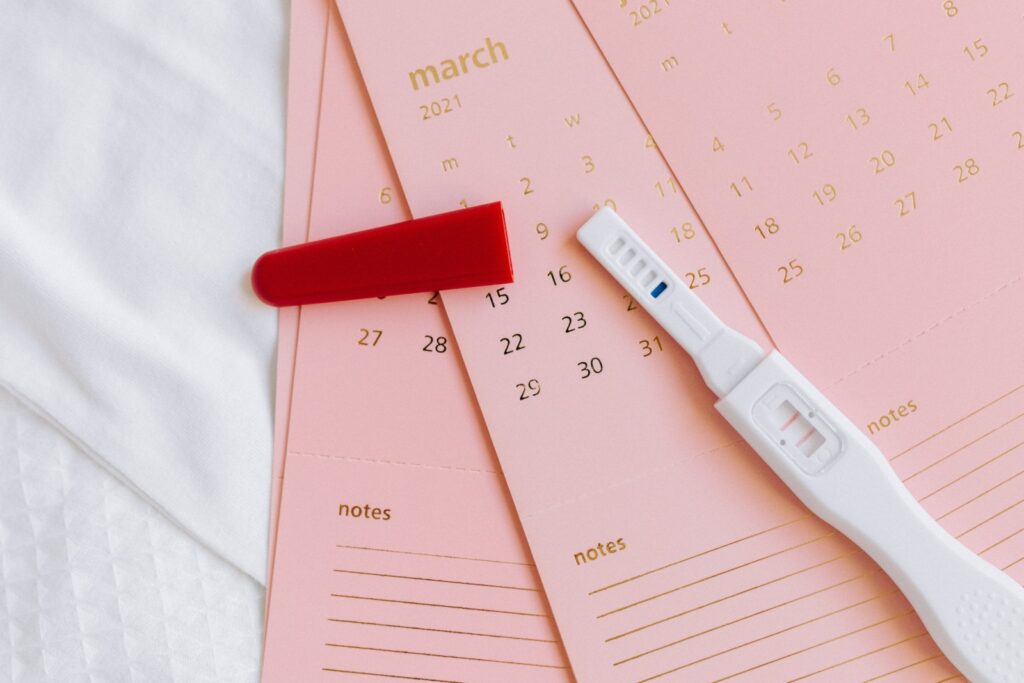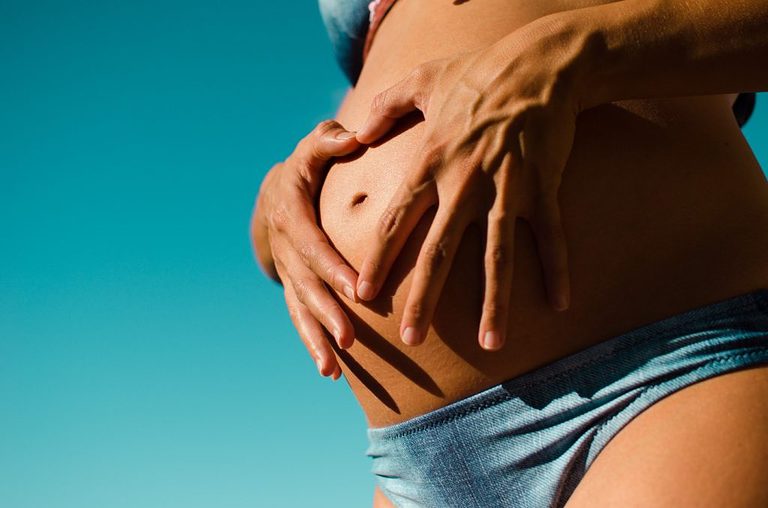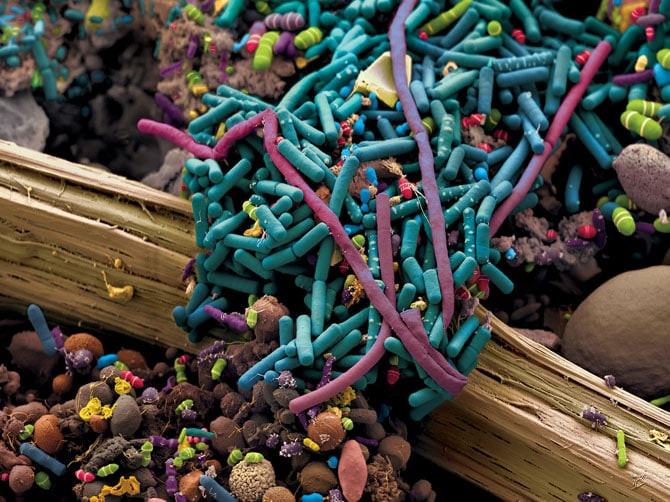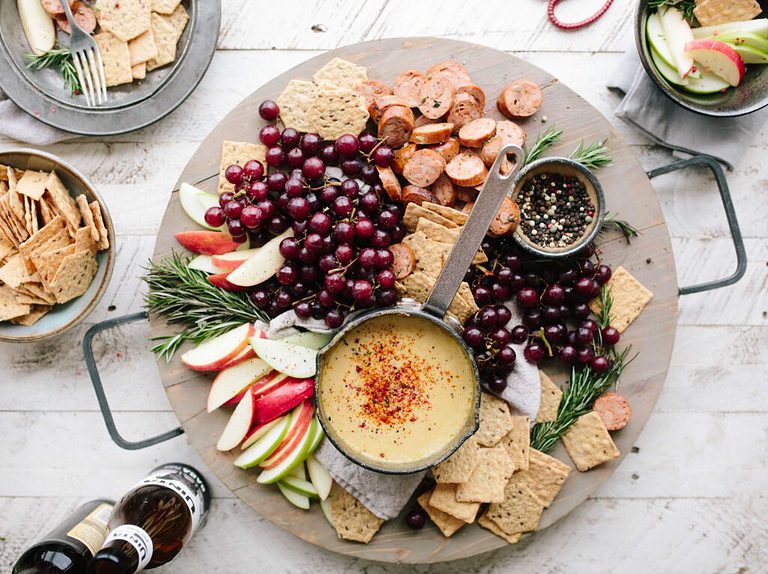The period prior to pregnancy, known as the pre-conception period, is a time of lots of excitement, information and sometimes, uncertainty. Most couples want to put themselves in the best position possible to conceive quickly and easily, to have a healthy pregnancy and overall, a happy and healthy baby at the end. It is easy to see why couples may get overwhelmed with all the information out there, especially online when it comes to addressing all the important steps to ensure a healthy pregnancy and baby.
To help you to feel more informed about where to go to get the right information on your journey to pregnancy, we have put together our top 10 ways an expert fertility dietitian can help you prepare for pregnancy, so you can feel confident that you’re giving your baby the very best start!
1. Correct deficiencies prior to conception
The first place to start with your pre-conception health is to get a pre-conception blood test. For dietitians, some of the major things we look at are your nutritional lab work. This includes folate, vitamin B12, iron and vitamin D.
Correcting deficiencies prior to conception is CRUCIAL, not only can nutrient deficiencies interfere with optimal conception, but heading into pregnancy behind the eight-ball is a recipe for fatigue!
Iron stores in particular are really drained from you during pregnancy in the second and third trimesters to support the expanding blood volume there to help nourish and nurture your growing baby. It is important for you to have good iron stores as the baby takes from your iron stores, and optimising iron stores during pregnancy helps to support your baby for the first 6 months of life, or up until they start solids (iron-rich foods first!)
Seeing an expert fertility dietitian & nutritionist means you can work together to fill the gaps in your diet and improve those nutrient levels to put you in the best position for pregnancy.
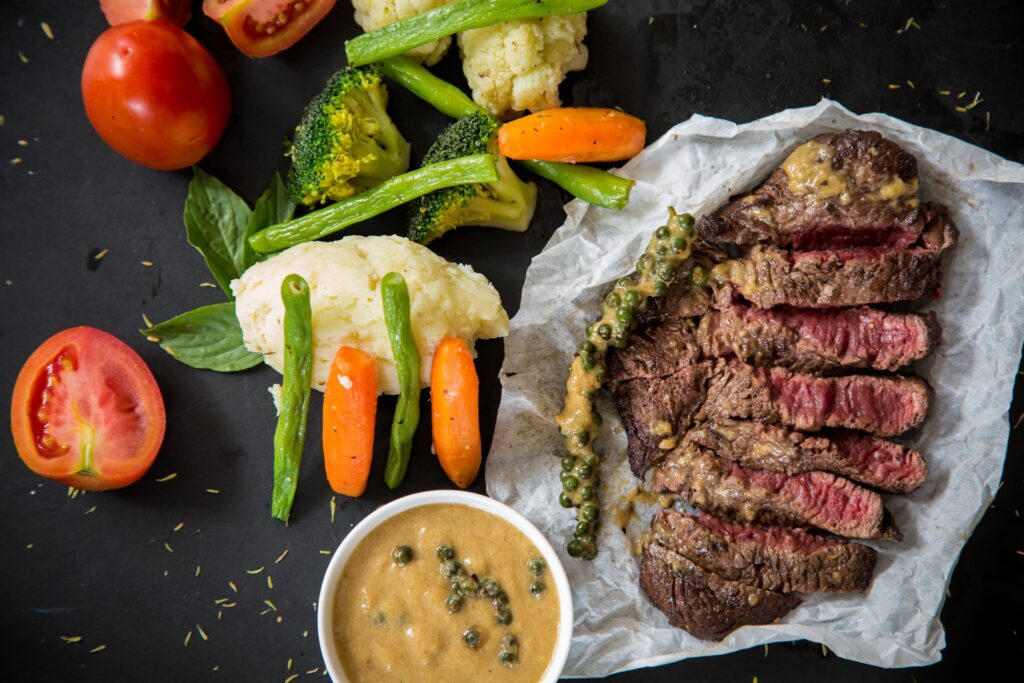
2. Improve egg quality
Females are born with all the eggs they will ever have, and this number (already) declines dramatically by the time we reach puberty (super unfair right?). Unfortunately, there is nothing we can do to increase the number of eggs we have, and in that way, the number of chances we have, to conceive. What can be improved and controlled is our egg quality.
There are a number of things that affect egg quality (some of which we cannot control – like our age!), and luckily quite a few of the things that improve egg quality, can come from enhancing our diet!
Fruits and veggies are full of antioxidants which helps protect eggs from cellular damage. Antioxidants are little compounds that protect our body cells from damage. Our recommendation is to load up your plate with 3 or more colours at each main meal so you’re getting a variety of these defensive warriors on your side to protect your eggs in the lead up to conception!

3. Improve chances of conception
Following on from improving egg quality, a higher quality egg can lead to a higher quality embryo, improving chances of conception. For successful conception we also need a nice first home for the embryo – the uterus!
Did you know that your diet can assist with thickening the uterine lining? And it can help support a healthy environment and contributing to an environment that leads to healthy conception and pregnancy.

4. Tailored prenatal supplementation plan
Each person is completely unique when it comes to their diet and medical history. This means that there is no universal prenatal supplement.
Seeing a fertility dietitian who can complete a thorough nutrition assessment, considering medical and health history, diet and lifestyle, ensures you are able to achieve a successful pregnancy.
5. Improve your fertility with considerations around your health history/medical condition
Speaking of health history – did you know that several conditions impact your ability to conceive? Navigating a chronic health condition can be overwhelming and difficult at the best of times. When we pair this with fertility and pregnancy, it can get a whole lot more confusing!
Dietitians are trained in navigating a number of medical conditions and can factor this in as well as optimal fertility nutrition into your personalised.
These include:
- Diabetes (any type)
- Endometriosis & Adenomyosis
- Polycystic ovarian syndrome (PCOS)
- Thyroid conditions like hypothyroidism, Hashimoto’s and Grave’s disease
- Coeliac disease
- Inflammatory Bowel Disease (IBD) such as Crohn’s Disease & Ulcerative Colitis

6. Work with your partner to improve preconception health
You didn’t think we were going to let the sperm part of the equation off the hook, did you?! Fertility dietitians can work with both persons involved in conception. Just as a higher quality egg is more likely to lead to improved health outcomes, so too is a higher quality sperm.
A great fertility dietitian can take in all the same information around diet, lifestyle, and health history to develop a tailored plan for those of you with a male partner to work on their end of the deal and improve their nutrition to ensure optimal outcomes.
After all, sperm is a good chunk of your future baby’s DNA, let’s make sure it is the best it can be!

Are you planning to start trying to conceive in 3-12 months?
Boost Your Fertility Knowledge with our first-of-its-kind approach!
With Weekly Modules from 4 Key Professionals in fertility and Pre-Conception!
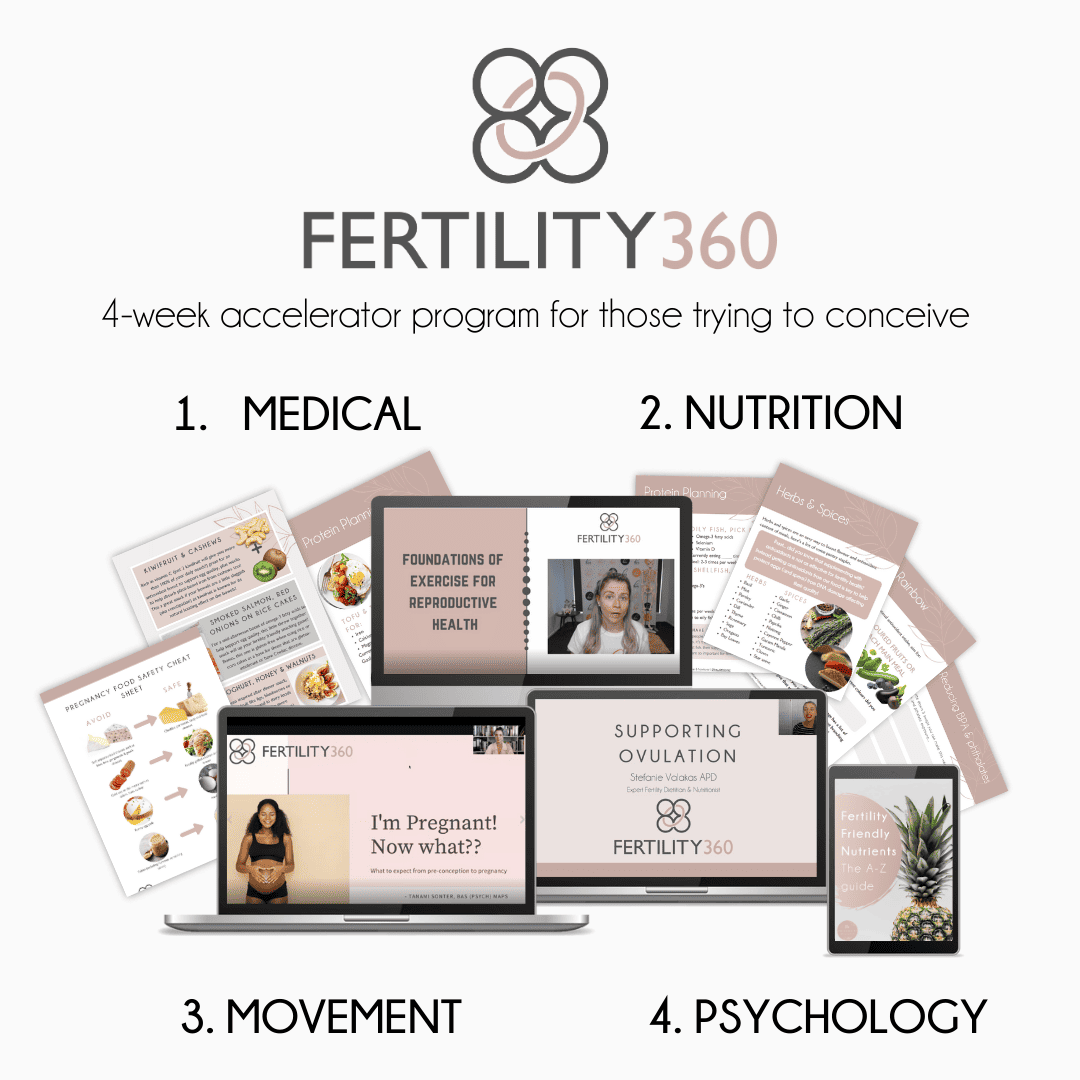
7. Assist with weight management goals
Fertility dietitians can help you to increase to decrease your weight (or rather your body fat levels) in a realistic and sustainable way, that will prepare you for pregnancy.
Research has shown that women who fall into higher ranges on the BMI scale are at an increased risk of pregnancy and obstetric complications such as pre-eclampsia, gestational diabetes, large birthweight babies and shoulder dystocia (Simko et al., 2019). This extends to the health of the infant as there is an increased risk of developing cardiovascular disease and type 2 diabetes (Raaz et al., 2020). Having fat stores that are too low can impact on ovulation and menstrual regularity, which can cause issues when you are trying to conceive. If your body weight is too low in pregnancy, there is an increased risk of preterm birth and having a low birthweight baby (Yu et al., 2013).
A fertility dietitian can guide you through what an optimal weight range is for you and advise you around how to have a health pre-pregnancy diet. Dramatic shifts in weight, and fad diets are not recommended for maximising preconception health and having a good relationship with your body and food is important.
8. Hydration!
This sounds so obvious, but you may be wondering why it even needs to be mentioned? Hydration status can affect the volume and viscosity of semen, as semen is made up of mostly water! And for females, cervical mucus in women is also composed of mostly water. The water content in each is responsible for supporting sperm transit to the egg.
A fertility dietitian can assist you with making the right choices around which fluids are best to include, and how to make sure you are remembering to get the right amount in!

9. Can help with managing caffeine and alcohol intake
Following on from hydration, fertility dietitians can advise you around how many coffees are too much when trying to conceive, and how to navigate social events where alcohol is served. This is important for both male and female counterparts as alcohol can have a negative effect on fertility, and health outcomes in early pregnancy.
Read more about caffeine when trying to conceive and in pregnancy here

10. Assist with food safety prior to conception and in early pregnancy
When trying to conceive and in pregnancy, there is a list of foods that are considered a higher risk to consume due to their bacterial properties and/or may be considered toxic in high levels such as mercury, vitamin A and alcoholic drinks.
To avoid the hectic Google frenzy once you do get that positive pregnancy test, a fertility dietitian can guide you through safe food handling and preparation and understanding what you can and cannot eat once pregnant, so you feel prepared without the stress in those early days of pregnancy!
Want a multi-disciplinary team’s knowledge in your pocket for a FRACTION of the cost of all the one-on-one consultations with a doctor, fertility dietitian, exercise physiologist & psychologist? Join Fertility360 a 4-week community-based online program guided by experts in pre-conception health across medicine, nutrition, exercise and psychology for just $247 AUD.

